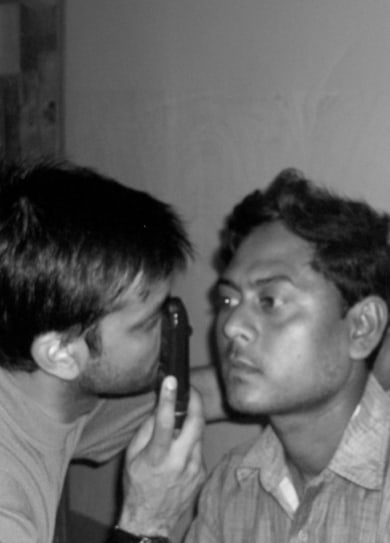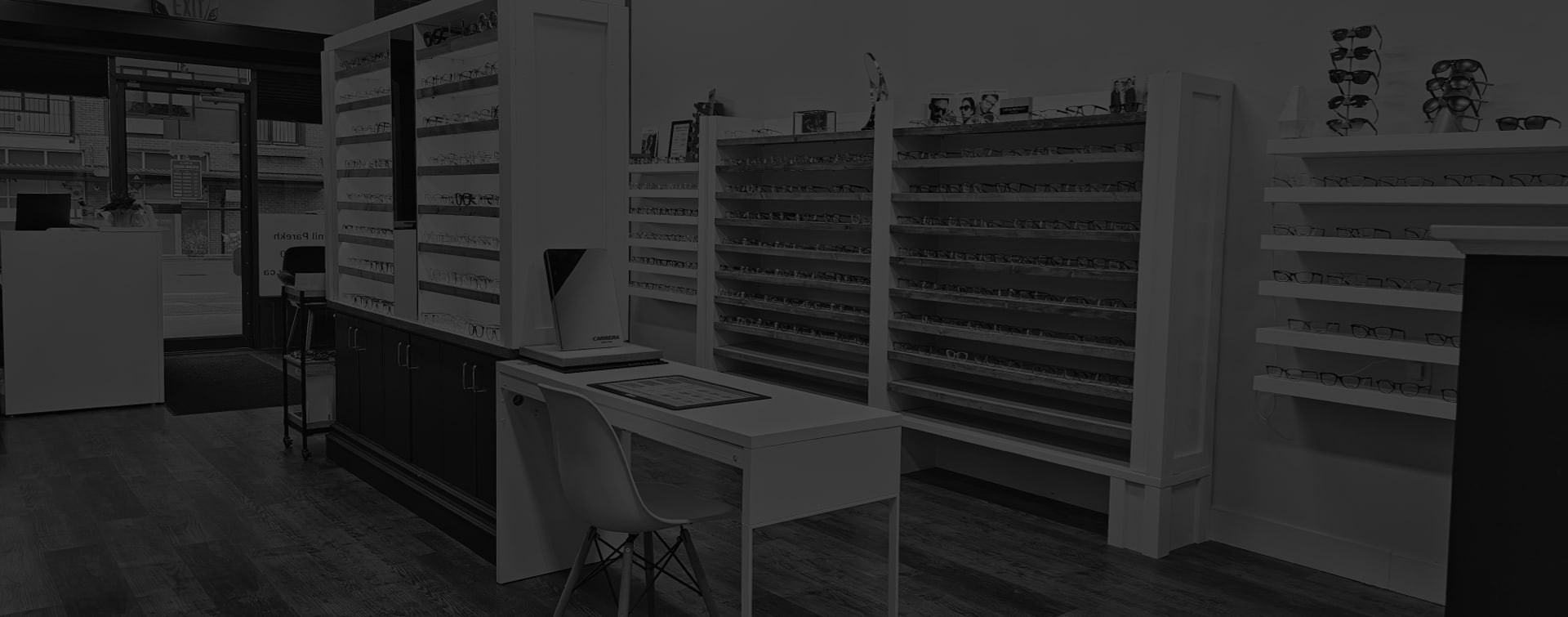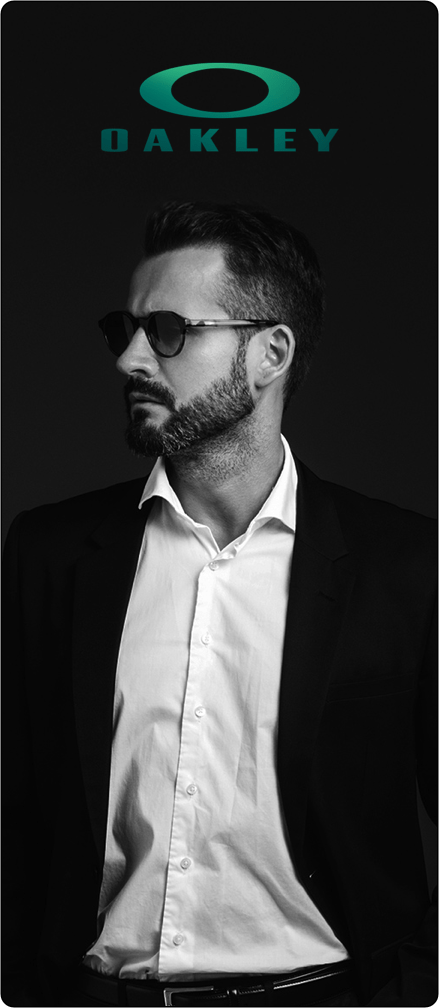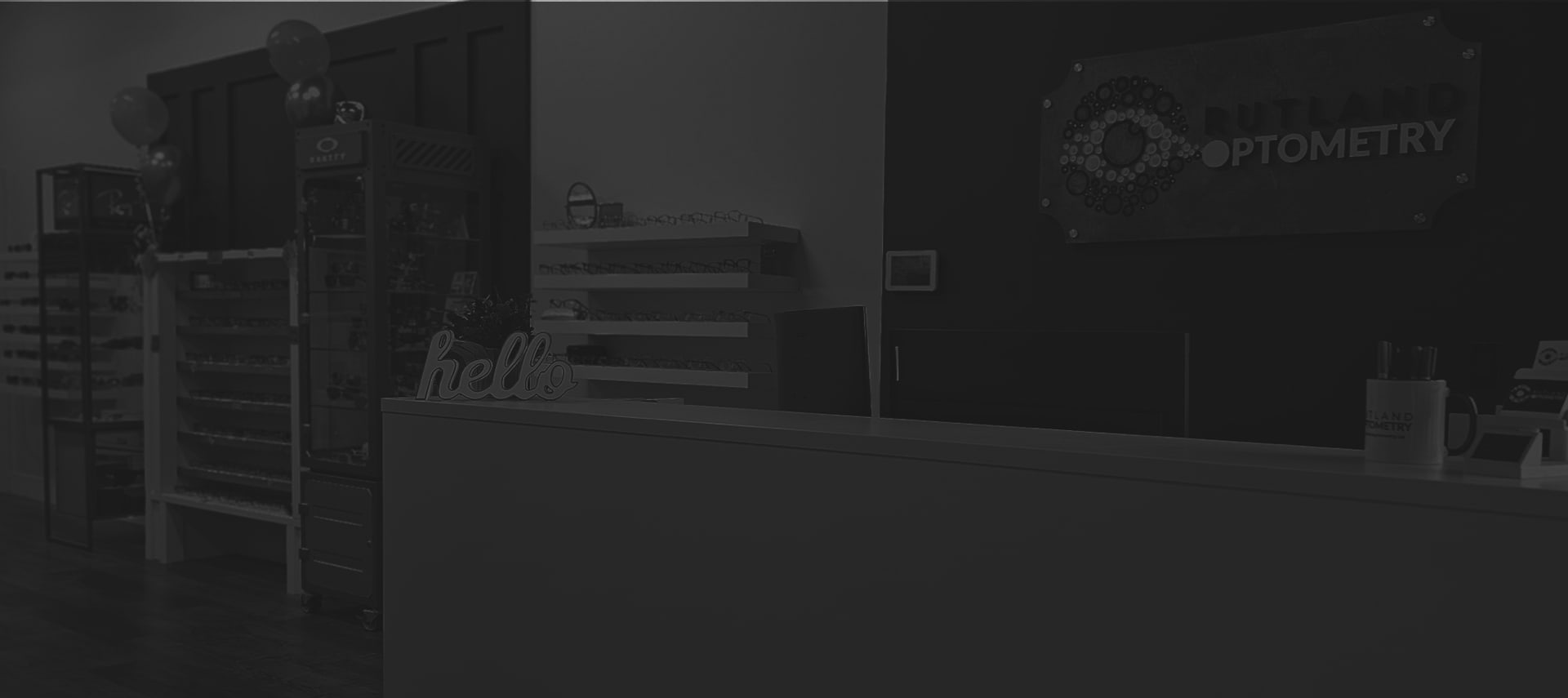Prevention Is the Best Medicine
It’s true: prevention is the best medicine, especially when it comes to your eyes. At each comprehensive eye exam, your eye doctor checks for more than just how well you see.
Your eye care needs change as you age. Sometimes, you may require reading glasses to do up-close activities, or your prescription changes to include bifocals. But the health inside your eye is also changing. Your increasing age can increase your risk of developing eye conditions and diseases.
Let us have a look inside your eyes. While you’re here, we’ll explain everything we do so you can make educated decisions about your eye health and vision.

When Do You Need an Exam?
Rutland Optometry follows the eye exam schedule laid out by the Canadian Association of Optometrists. Routine visits help us track changes in your eyes so we can personalize your care and act proactively to preserve your vision.
- Ages 19–64: At least once every 2 years
- Ages 65+: Every year
Our Method: What to Expect at Your Next Eye Exam
At Rutland Optometry, we’ll examine your eyes’ overall health. We begin by gathering your information, getting to know you, and discussing your family history and lifestyle to understand your eye health needs.
Next, you’ll undergo pretesting, during which we check the pressure inside your eyes (IOP), assess your field of view, and take photos of your eyes’ internal structure. These tests help identify potential eye diseases or conditions.
When you meet with your optometrist, we’ll discuss any changes in your vision and eye health, helping you understand everything about your eyes.
If you need a follow-up appointment, we’ll guide you through the process. If your prescription changes, explore our optical boutique for a wide selection of unique eyewear frames that match your style.
What We’re Looking For
Many eye health and vision changes can begin without showing noticeable symptoms. However, there are signs that we can detect with thorough, routine evaluations.
We take the time to test and check for eye diseases at each appointment. If you’re at higher risk, we may perform additional tests. This helps us get the full picture of your eye health.
Here are some common conditions we look for during routine eye exams.
As we age, our eyes age, too. Just as it’s sometimes difficult to jump around like we used to, our eyes can also lose their flexibility. Presbyopia is part of the natural aging process and causes your eyes to lose their ability to focus on close-up objects.
Presbyopia can cause headaches, blurred vision, sore eyes, and the need for more light to see better. If you have presbyopia, your eye doctor may prescribe bifocal or progressive lenses, which are available in eyeglasses and contact lenses.
We look out of a crystalline lens in our eyes to view the world. As we age, that lens can become cloudy, causing our vision to become hazy. This is called a cataract. Many people will develop this condition later in life.
In the early stages, we can adjust your glasses or contact lens prescription to accommodate the changes in your vision, but eventually, you may require cataract surgery to replace the damaged lens.
Glaucoma is a group of eye diseases that affect your optic nerve (the part of your eye that sends images to your brain). It begins by affecting your outermost (peripheral) vision first, working its way inward, which is why it isn’t easy to detect without routine eye exams.
The most common form is open-angle glaucoma, caused by increased fluid and pressure inside the eye. If detected early, glaucoma symptoms can be managed and mitigated.
As a leading cause of vision loss among older adults, macular degeneration is typically age-related. It affects your macula, the tiny part of your retina responsible for clear central vision. Early stages of macular degeneration may not show any symptoms but can be diagnosed with routine eye exams.
There are 2 types of macular degeneration: wet and dry. The dry form causes vision to change slowly, affecting the tissue in the retina. The wet form is caused by a sudden leakage of weak blood vessels in the eye and can occur quickly.

Your Eyes Matter: Let Us Help Protect Your Vision
Your routine eye exam helps protect your eye health and vision, giving us insight into your changing needs so we can support you now and in the future.
We want you to have happy, comfortable eyes, whether they are healthy or need a little extra attention. Please let us know if you have any questions during your exam, and enjoy a browse through our eyewear boutique following your appointment.
Our team at Rutland Optometry is ready for your next eye exam—all you have to do is book it.
Why Choose Us

Eyewear That Fits Your Style & Needs
With decades of experience in the community, we’re your local destination for eyewear. Whether you’re looking for classic frames or trendy sunglasses, our team is your guide to finding the look and fit that suits your unique lifestyle.
Thanks to our on-site lens edger, we can craft your lenses with precision and offer same-day service for most single-vision lenses.

Giving Back to the Community: One World Two Eyes
We believe in giving back to those in need. Dr. Sunil Parekh proudly joined One World Two Eyes in 2024, a non-profit organization that provides essential eye care services to children in underserved communities worldwide.
By supporting One World Two Eyes, we’re helping make a positive impact on the lives of children who may not have access to the eye care they need.

Protecting Your Child’s Vision: Myopia Management
Nearsightedness (myopia) is on the rise, affecting more children than ever before. By slowing progressive myopia, we can help preserve their long-term eye health and vision.
At Rutland Optometry, we want to help kids succeed. Our comprehensive myopia management can help your child achieve their full potential in and out of the classroom.

Our Location
Our office is conveniently located just minutes from Highway 93 on Highway 33 in the heart of Rutland. Find us inside Willow Park Mall, with ample parking just outside our doors.
Our Address
- 3-590 Hwy 33 W
- Kelowna, BC V1X 6A8
Contact Information
- Phone: 250-868-3480
- Email: [email protected]
Hours of Operation
Our Eyewear Collection




Our Reviews
Check Out Our Blogs
What Are Myopia Glasses?
MyopiaMyopia glasses are prescription lenses designed to correct blurry distance while also slowing down the rate at which the wearer’s prescription changes. […]
How Long Do Contact Lenses Last?
Contact LensesThe lifespan of your contact lenses depends entirely on the type prescribed during your contact lens exam and fitting. […]
How Long Does Eye Strain Last?
Eye HealthThe reassuring news is that eye strain is typically temporary and resolves once you rest your eyes properly, usually within a few hours. However, if you’re dealing with chronic digital eye strain, symptoms may persist until you address the root causes and make meaningful changes to your daily habits. […]
What Are Myopia Glasses?

Myopia glasses are prescription lenses designed to correct blurry distance while also slowing down the rate at which the wearer’s prescription changes. […]
How Long Do Contact Lenses Last?

The lifespan of your contact lenses depends entirely on the type prescribed during your contact lens exam and fitting. […]
How Long Does Eye Strain Last?

The reassuring news is that eye strain is typically temporary and resolves once you rest your eyes properly, usually within a few hours. However, if you’re dealing with chronic digital eye strain, symptoms may persist until you address the root causes and make meaningful changes to your daily habits. […]




